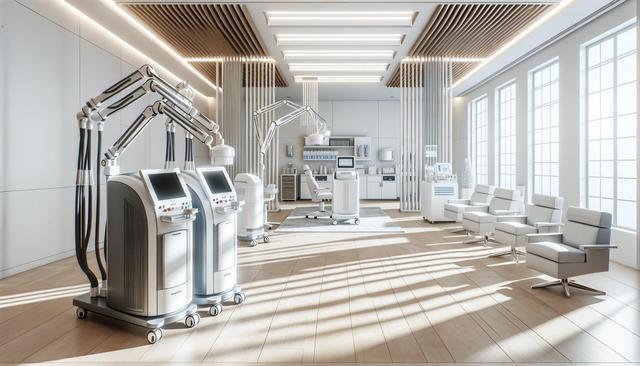
Discovering What a Laser Treatment Clinic Can Offer
Understanding Laser Treatment Clinics
Laser treatment clinics specialize in using advanced laser technologies to address a variety of skin, hair, and medical concerns. These clinics are typically equipped with certified professionals and specialized medical-grade devices that offer targeted treatments with minimal downtime. Whether you’re dealing with unwanted hair, acne scars, sun damage, or signs of aging, laser procedures can provide a tailored solution. The rise in popularity of these clinics is due in part to the precision and safety that laser technologies offer compared to more invasive alternatives.
Most clinics offer consultations to help patients understand the suitable treatments for their specific concerns. This personalized approach not only enhances results but also builds trust between the patient and the practitioner. With proper evaluation, clinicians can recommend the appropriate laser type, intensity, and frequency of treatment for optimal outcomes.
Common Services Offered
Laser treatment clinics provide a broad array of services that cater to different aesthetic and dermatological needs. Some of the most common treatments include:
- Laser hair removal for long-term hair reduction
- Fractional laser resurfacing for acne scars and wrinkles
- Pigmentation correction for sun spots and melasma
- Laser vein treatment for spider veins and vascular lesions
- Skin tightening using non-ablative lasers
Each of these services is designed to target specific layers of the skin without damaging surrounding tissue, making them a convenient option for those who prefer minimal recovery time. In addition, many clinics also offer combination treatments that integrate laser therapy with other modalities such as chemical peels or microneedling to amplify results.
Technology and Safety Considerations
Safety is a top priority in any reputable laser treatment clinic. Advanced machines are often equipped with cooling systems and adjustable settings to accommodate different skin types and tones. Clinics typically follow strict protocols to ensure the safety of both patients and staff. Before any treatment, a patch test may be conducted to assess skin sensitivity and reduce the risk of adverse reactions.
Patients are also given pre- and post-treatment care guidelines to follow. These may include:
- Avoiding sun exposure before and after sessions
- Using prescribed topical products to aid healing
- Staying hydrated and maintaining a healthy skincare routine
Regular maintenance appointments may be recommended based on the type of treatment and individual skin response. It’s essential to choose a clinic that is transparent about its procedures, equipment, and practitioner qualifications.
What to Expect During Your Visit
A visit to a laser treatment clinic typically begins with a comprehensive consultation. During this initial session, the clinician will assess your skin condition, discuss your concerns, and recommend a customized treatment plan. Depending on the type of procedure, you may require multiple sessions to achieve the desired results.
Most treatments are quick, often lasting between 15 to 60 minutes. There’s usually minimal discomfort involved, and many devices feature integrated cooling systems to enhance patient comfort. Some mild redness or swelling may appear post-treatment, but these symptoms generally subside within a few hours to a couple of days.
Clinics often emphasize realistic expectations, explaining that while significant improvements can be achieved, outcomes vary based on skin type, age, and lifestyle habits. Follow-up care is crucial to ensure lasting results and monitor the skin’s response to treatment.
Choosing the Right Clinic
When selecting a laser treatment clinic, several factors should be considered to ensure a safe and satisfying experience. Look for credentials such as board-certified dermatologists or licensed technicians with specialized training in laser procedures. A well-established clinic should also use FDA-approved equipment and maintain high hygiene standards.
Reading patient reviews and requesting before-and-after photos can provide insight into the clinic’s track record. Additionally, a reputable clinic will never pressure you into unnecessary treatments. Instead, they should focus on educating you about your options and helping you make informed decisions. Consider the following when evaluating a clinic:
- Transparency about pricing and expected outcomes
- A welcoming and professional environment
- Willingness to answer questions and provide detailed information
- Availability of follow-up care and support
Taking the time to research and consult multiple providers can lead to a more personalized and rewarding experience.